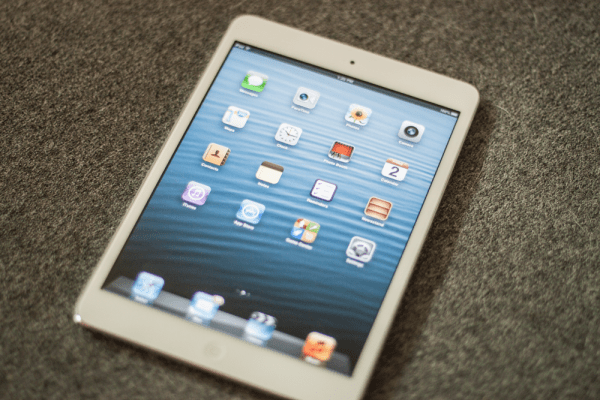The iPad mini hit store shelves today, and I got the chance to get one for myself. The device is a terrific consumer tablet, but it has a lot of potential to be an even more impressive player in retail, restaurant and industrial applications. The iPad mini’s big brother has done a good job of making headway in businesses and customer service, but the iPad mini has a strong chance to help drive those accomplishments even further.
Why? Simple: it’s cheaper, it’s lighter and yet it can run all the same software that the original iPad can. $70 (the gap between iPad mini and iPad 2) might not be that much of a difference for a single purchase, but tallied over a whole fleet of devices, it definitely adds up. For volume purchasers, the difference between the iPad mini and the iPad in price could be the difference between getting a budget item approved or denied. Weight and portability are also huge factors; the 3rd generation actually dialed the needle back in this regard, so the iPad mini feels that much lighter by comparison, and professionals who will be spending most of their day carrying this thing around will really appreciate a device that’s half the weight.
But the big bonus is that it plugs into the existing software ecosystem without modification required from developers. That means that retailers can take advantage of existing software from providers like Revel and Square, as well as custom-created apps for sales staff distributed via enterprise deployment. Developing a business case, preparing a change management plan, training staff on the iPad mini’s use – all of the above requires only minimal changes for the thousands of businesses already using or testing iPad deployment.
In a survey released today that seems ironically weighted towards promoting Windows 8, a study found that 31 percent of small businesses were already using the iPad for various tasks. The penetration it has managed over the past two years is like a two-lap head start for the iPad mini, and recently analysts have suggested it will be a big hit with business users, and for many of the same reasons it’ll likely take the service industry by storm as well.
While other similar devices like the Nexus 7 are cheaper, Apple’s existing tablet market lead is what gives the iPad mini more potential for commercial use. Almost every company in the Fortune 500 is either testing or deploying the iPad, according to Tim Cook, which means a rich enterprise software ecosystem already exists, and more solutions for businesses big and small will continue to roll out. The wide availability of software vendor choice and shops with iOS development expertise is likely more than enough to offset the differences in the cost of hardware between the iPad mini and other small tablets on the market, even though Amazon appears to be stepping up and attempting to sell harder to business customers with its Whispercast provisioning service.
The iPad mini is a near ideal device for inconspicuous installation in kiosk and self-serve terminal applications, and one enterprising company has already leveraged it to create an in-dash entertainment system for cars. When you pick one up and handle it, you think about how easy it would be for a doctor to use it to replace a clipboard, or a salesperson to ditch a bag of product samples and carry a digital portfolio instead. In other words, it feels like it could have the impact of the iPad on small business, but multiplied and amplified all over again.
